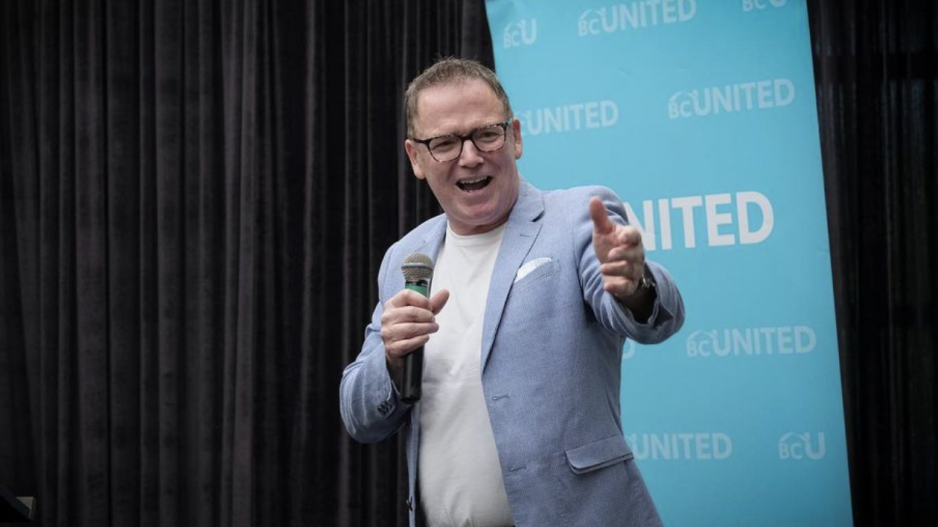After months of resistance, BC United Leader Kevin Falcon appears to have come around to what has been obvious to others for many months now: the renaming of his party has not been successful.
Falcon has given the go-ahead to ask Elections BC to put “BC United (formerly the BC Liberal Party)” on the ballot for October’s provincial election. The move returns the BC Liberal name to the mix, 16 months after the party jettisoned it in favour of BC United.
“We've got 30 per cent of the voters that don't know who BC United is and don't understand the connection between BC Liberal,” Falcon said in an interview. “So there's a huge amount of confusion out there.”
Falcon was referring to an internal poll of his party members, in which almost one-third admitted they didn’t know BC United used to be the BC Liberals.
It’s an extraordinary figure. If that many actual party members are confused about the name, imagine how widespread the problem is amongst the general public, which barely pays any attention to B.C. politics.
“By just emphasizing the fact that we are the former BC Liberal Party, I think it's important because we do have an important track record to be very proud — not perfect, no government ever is, but a good track record,” said Falcon.
The move is a reversal by Falcon, who has for many months resisted any suggestion that the United name change failed to stick. But it comes after several months of collapsing support.
United is now in a distant fourth place in most recent polls, including on Tuesday that pegged the BC NDP at 41 per cent support amongst decided voters, the BC Conservatives at 38 per cent, the BC Greens at 10 per cent and United at only nine per cent.
Meanwhile, Richmond’s Teresa Wat became the fourth BC United MLA to jump ship to the Conservatives on Tuesday, saying United could no longer defeat the NDP.
The current situation is so bad, why wouldn’t United try to add a few percentage points of support back into the collapsing tent, by dusting off the old moniker?
Part of the reason, so far, has clearly been pride.
Changing the Liberal name was a cornerstone of Falcon’s leadership campaign in February 2022. Party members voted 80 per cent to approve the idea in November 2022, at his urging, and it became official in April 2023.
Falcon has sunk a lot of his personal reputation in the move. He’s defended it against criticism. It would be hard for him, or anyone else in his shoes, to admit it hasn’t been successful.
And the name change still makes sense — in theory, anyway.
Falcon was concerned about getting caught up in voter confusion over what looks to be the impending disastrous collapse of the federal Liberal party under Prime Minister Justin Trudeau. He wanted a name more welcoming to the free-enterprise coalition he helped build in the 1990s, which contained both liberals and conservatives. Both of those reasons still stand.
However, the rise of the BC Conservatives under leader John Rustad has disrupted the exercise. The centre-right has so far aligned under the Conservatives. United has created a big tent, with a new name, but nobody inside to fill it.
Predictably, Conservatives and New Democrats on Tuesday reacted to the news of the Elections BC ballot name change by calling it weak and desperate. Much mockery occurred. Many memes were posted.
But that’s just bluster and noise. Admitting a mistake and trying to change course is not entirely weak. Even in the most desperate of situations, it takes an element of strength. In that, United is showing promise with the move. Perhaps, even, the party has reached rock bottom, and this is one of the first steps back up.
Rob Shaw has spent more than 16 years covering B.C. politics, now reporting for CHEK News and writing for Glacier Media. He is the co-author of the national bestselling book A Matter of Confidence, host of the weekly podcast Political Capital, and a regular guest on CBC Radio.




